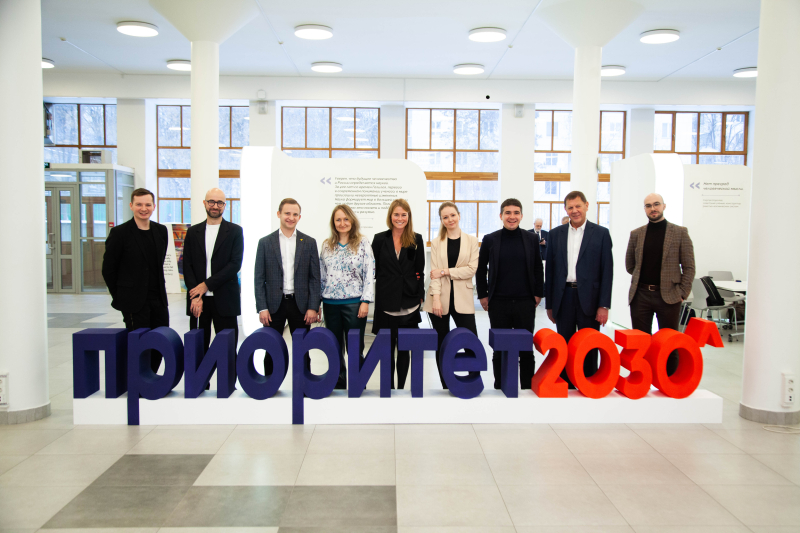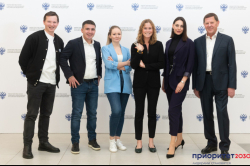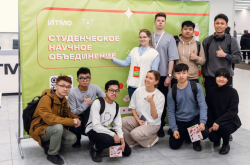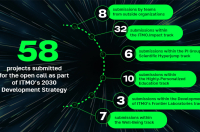The mechanism by which the base grant is calculated has been adjusted; now, the sum varies year-by-year depending on the number of students within each participating university’s “Digital Department” – a moniker for professional retraining programs held within a federal project that aims to foster a specialist pool for the IT industry. In 2023, ITMO University’s base grant will amount to 149.9 million rubles.
As part of the Priority 2030 program, the university is implementing its own 2030 Development Strategy, also referred to as Open-Source University. The strategy includes a slew of strategic projects, all intended to accelerate scientific and technological breakthroughs, attain a high level of technological readiness, transform the educational process, and encourage integration between business, science, and education. Many of the strategy’s flagship projects deal with artificial intelligence across the spectrum of the university’s scientific and educational fields of focus. Priority 2030 provides universities with the opportunity to quickly create favorable conditions for the training of high-quality AI specialists, implementation of ML tools into scientific, educational, and administrative processes, as well as promotes product approach and business thinking among lecturers and students.
“Artificial intelligence is a crucial tool that can have a profound effect on the economy and multiply the efficiency of industrial, scientific, and educational processes manifold. The more widely we integrate AI into the everyday activities of ITMO and its industrial partners, the more applications and development prospects we’ll discover. Every year, Priority 2030 helps ITMO supply 15% of all top specialists on the AI market, as well as not only amplify the integration of AI, but also raise the bar for the complexity of ML algorithms and predictive models,” notes Vladimir Vasilyev, the Rector of ITMO University.
In 2023, the university launched ITMO TRACK, a recommendation service that recommends Bachelor’s programs based on the users’ career aspirations, salary expectations, and the skills they plan to acquire while studying. What’s more, the future student can immediately track their academic path, from enrollment to graduation: the website provides a handy infographic that lays out a 4-year plan containing courses, exams, and tests.
AI can help make the right choices not just in education, but in medicine, too. Specialists from ITMO have used machine learning to teach a digital system to pick the optimal nanoparticles for cancer treatment. When used to deliver medicine to cancer cells, the particles can reduce side effects, increase solubility of the medicine, and even contribute to destruction of cancer cells. With the help of a genetic algorithm, the ITMO-developed technology generates nanoparticles that target cancer tissue without damaging the patient’s health.
The aforementioned system is not the university’s only Priority-2030 affiliated project at the intersection of science and medicine. Researchers from ITMO have also devised an AI service that processes sequencing data acquired from microorganisms, with the project aiming to help accelerate the study of human microbiota. Soon, the specialists plan to implement special modules to adapt the AI service for various branches of medicine. Another team from ITMO has produced results in the field of express diagnostics: their proposed alternative to PCR and test strips is based on binary DNA nanosensors. These devices ensure the accuracy of testing while simplifying the testing process itself. Suitable nanosensors were identified with the help of an AI model trained on previously acquired scientific data.
Today, AI is helping to solve complex problems that once required the efforts of multiple specialists. In 2023, a scientific team from ITMO University trained artificial intelligence to design industrial and harbor facilities in the Arctic while taking into account the construction standards, landscape, and harsh climate of the region. The technology promises to reduce the labor and time requirements for such projects, as well as help companies that are working above the Arctic circle (including on the continental shelf) to produce complex architectural designs with consideration for the local environment. This was made possible with the help of specialized AI algorithms based on the generative design technology. This combination of artificial intelligence, computer modeling, and big data allows users to generate plans of new facilities within mere minutes.
One of the main goals for ITMO is to create an accessible environment for AI. As part of that effort, the university has introduced SMILE.Cloud, a cloud service that allows any user – regardless of their programming skills – to create and test machine learning models for free. The service can build a model several times more quickly than a human and will help solve a problem even based on insufficient data.
In 2021, ITMO was listed among the recipients of Priority 2030’s base grant and the special Research Leadership grant. In 2022, the university demonstrated the top results among all participants of the track. This is in part thanks to ITMO’s transformation and adoption of the research and educational corporation model, which seeks to foster a culture based on entrepreneurial thinking, product approach, and expertise in new fields of science and business.
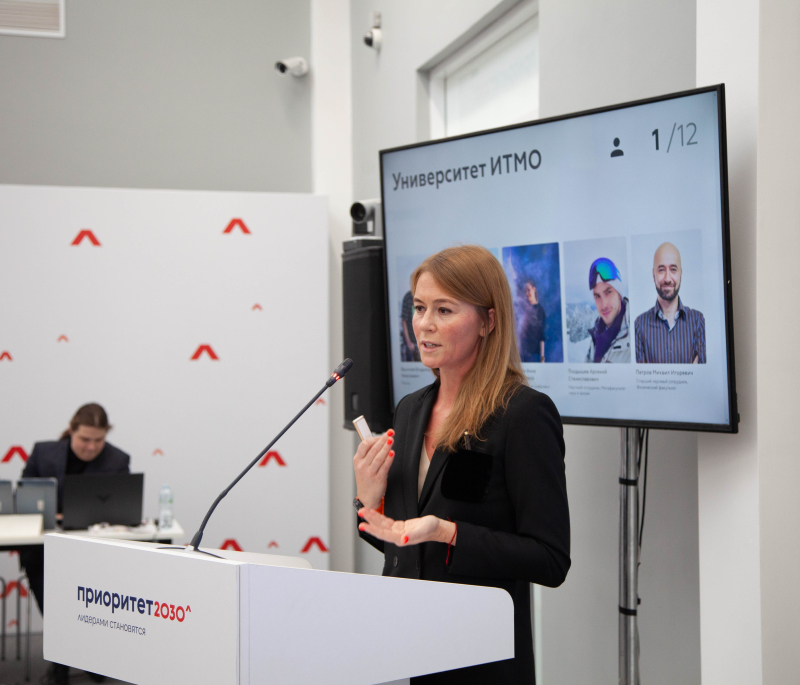
Daria Kozlova. Credit: Sociocenter
“A research and educational corporation isn’t just about taking on R&D contracts or doing projects with Big Tech. Here at ITMO, we see it as a new perspective on collaborating with business, which includes attracting private investments and creating things in joint collaboration between ITMO staff, investors, and legal entities. In this system, the main driver of growth is the Principal Investigator (PI), a project or study leader who takes on the responsibility for their team and its results. The future of ITMO depends directly on the people who are drawn to the university and choose to invest their time and energy,” says Daria Kozlova, the First Vice Rector of ITMO.
In addition to applied science, the Priority 2030 program focuses on reducing workplace adaptation time for students and providing them with the opportunity to build their individual learning tracks.
